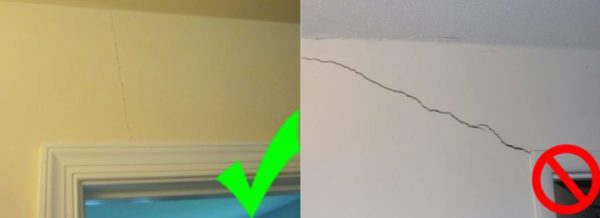This regularly-scheduled sponsored Q&A column is written by Eli Tucker, Arlington-based Realtor and Arlington resident. Please submit your questions to him via email for response in future columns. Enjoy!
Question: We’re looking for a house that needs to be completely remodeled, but want to make sure it has good bones. Do you have any tips on things to look for?
Answer: When I’m looking for a house with “good bones” I’m looking for a structurally sound house that offers a good canvass for updating to today’s standards. I’m cheating a bit this week and using a recent article written by Stephanie Dickens of BOWA, a local design-build firm that specializes in luxury renovations from kitchens to whole-home remodels.
Below are some of the best tips from BOWA as well as some of my own:
Level Floors
A nice, level floor indicates good structural support. If you look up to where the ceiling and the wall meet, the corner crease should be fairly straight. If it looks wavy or dips down in the middle, the floor joists above are sagging and may need reinforcement.
You can also check for sagging or tilting by measuring the ceiling height at various points in the room. Some variation is normal, but it should not be off by more than 1″ at any point.
Jump Around! (Jump Up, Jump Up, And Get Down!)
Now that you have House of Pain stuck in your head… Stand on your tiptoes then drop down hard on your heels. Do this at various points in the house to test the deflection in different areas. All wood framed floors are going to have some deflection, but you don’t want it to feel like your jumping on a trampoline. Too much bounce is an indicator of insufficient structural support.
Know Your Cracks
Sometimes structural issues reveal themselves in unexpected ways. Something as small as a crack in the drywall could be sign of larger structural issues. Straight, hairline cracks above openings or at joints, like the one pictured below to the left, are nothing to be alarmed about.
If you see jagged, diagonal cracks that are wider than 1/8″, like the one below to the right, the house may have settlement issues or insufficient framing.
Water Management
Water is a home’s worst enemy and poor water management can lead to water pooling against a home and getting into the cracks of the foundation, which can lead to structural deterioration over time. A musty smelling basement is a sign of poor water management. Look at where gutters drain — I often find that they’re dropping water right next to the house instead of sending it away.
Look at the grading (slope of the yard) and if water is running towards the house, look for drainage systems. Sump pumps are nice, but they should be connected to a battery back-up in case power goes out.
Young At Heart
A house with newer core systems is not just a sign of good maintenance, but it’s a huge money-saver in renovations. Check on the age of the windows, roof, HVAC, water heater, plumbing, electrical and main sewer/water lines. Any of these systems that are in the first half of their expected useful lifespan add tremendous value.
If you’re looking for a home with good bones that offers an efficient remodeling opportunity, feel free to reach out to me at [email protected] to schedule some time to speak with me. Once you’ve found that home, or if you’d like to make updates to your current home, reach out to BOWA’s Caroline Goree at [email protected] if you’re looking for high-end design and remodeling services.
If you’d like a question answered in my weekly column or to set-up an in-person meeting to discuss local real estate, please send an email to [email protected]. To read any of my older posts, visit the blog section of my website at www.EliResidential.com. Call me directly at (703) 539-2529.
Eli Tucker is a licensed Realtor in Virginia, Washington D.C., and Maryland with Real Living At Home, 2420 Wilson Blvd #101 Arlington, VA 22201, (202) 518-8781.



